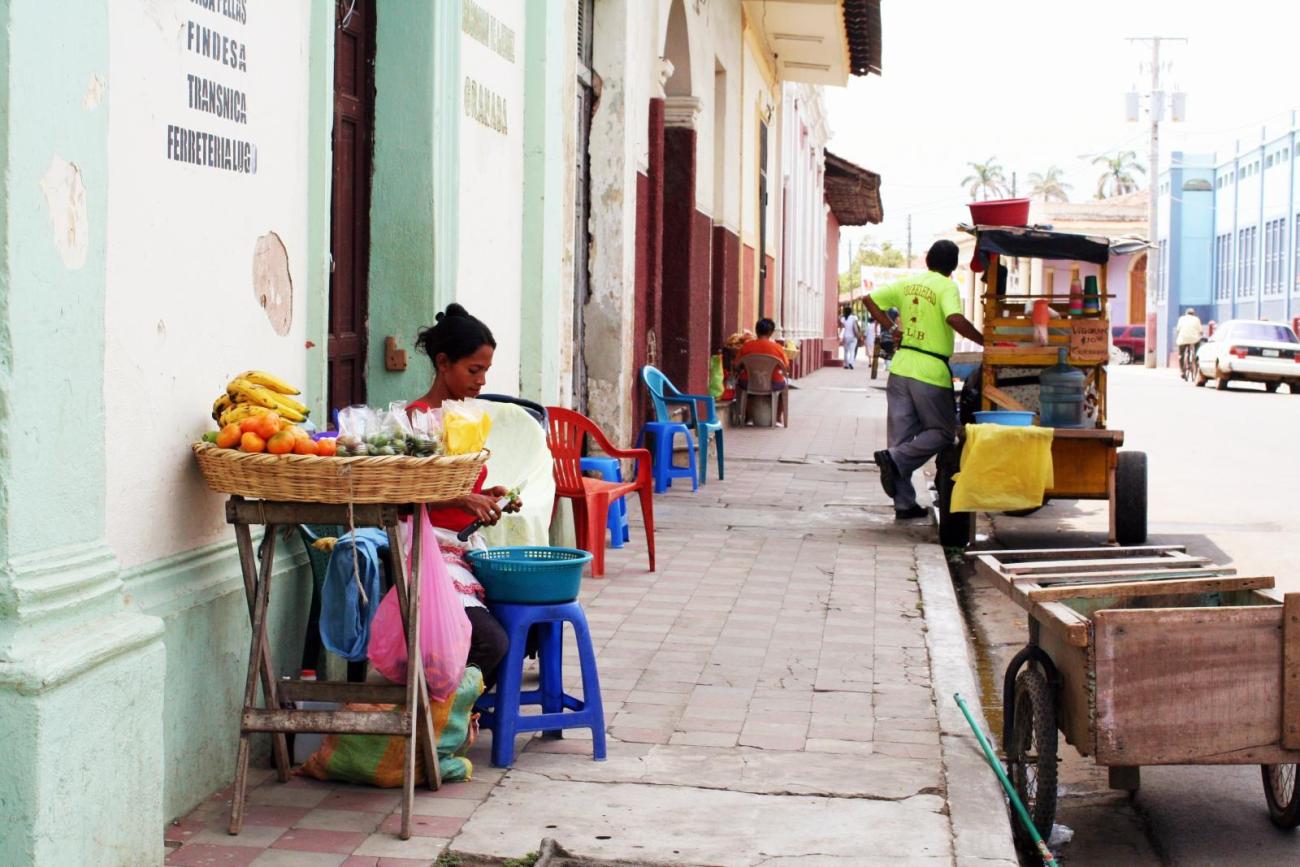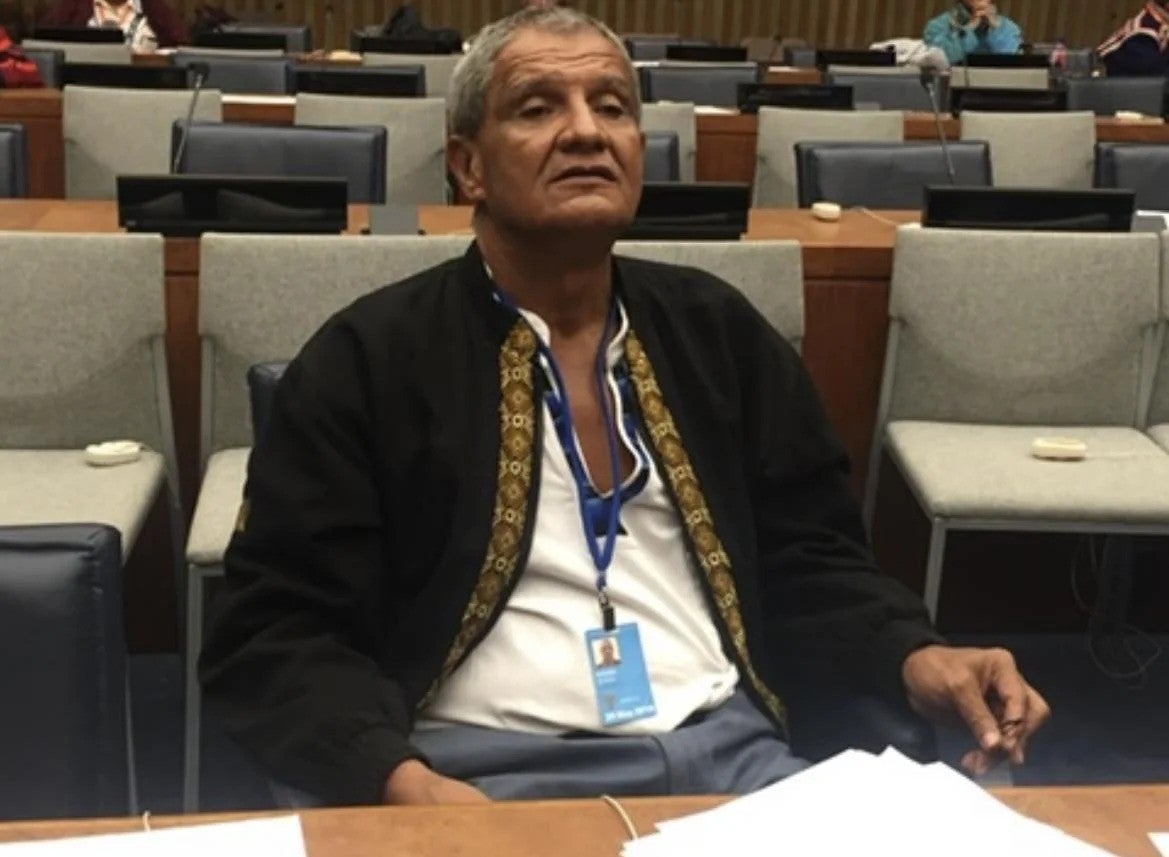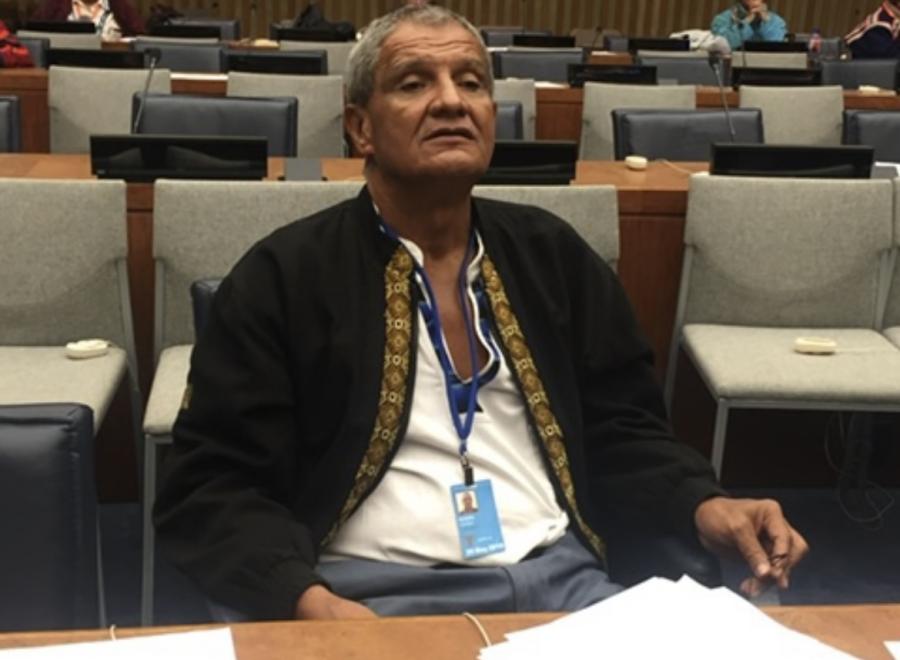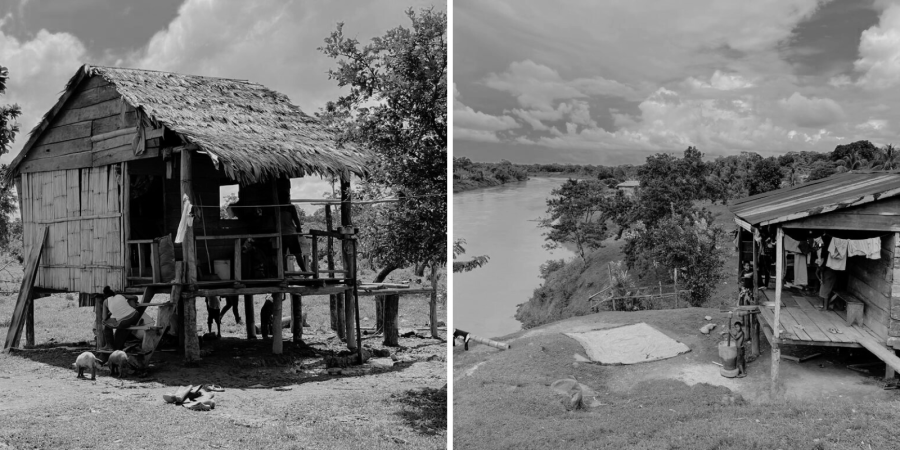
By John McPhaul
Anexa Alfred Cunningham, 45, a Miskitu Indigenous member of the UN Expert Mechanism on the Rights of Indigenous Peoples, spoke out on December 20, 2024, on the Constitutional reforms Nicaraguan president Daniel Ortega will put into place later this month, calling the reforms "nefarious" (nefasto).
The reforms extend the presidential term from five to six years for Ortega and his now-vice president Rosario Murrillo, his wife, will become his co-president. Cunningham said the reforms will concentrate power and cause even more repression in the entire country already suffering under the yoke of dictatorship. "The reforms will be especially harsh on the Indigenous population which has been targeted by the regime," said Cunningham.
The Miskitu are particular targets of the regime because they have defended their autonomy on their Caribbean Coast homeland for generations and the Sandinistas' determination to take charge of the land.

Brooklyn Rivera
Recently, another Miskitu leader was arbitrarily arrested and disappeared. Steadman Fagoth, who, like a fellow detainee, Brooklyn Rivera, was recently named by Amnesty International as a prisoner conscience. Rivera has been a key leader of the Miskitu since the 1980s. In November 2024, Ortega admitted he had custody of Rivera, who is accused of treason and conspiracy.
Experts have said promoting the return to democracy is the most effective way of freeing Rivera Fagoth and other disappeared prisoners. But such an eventuality is a long way off. Even before this month's reforms, in 2016 - 2017, Ortega gave himself the power of "coordinator" of the legislative, judiciary, and electoral powers of the State, as well as control of all the municipalities, effectively eliminating the rule of law.
Cunningham said the current reforms will further close civic spaces and eliminate freedoms not only for those living in Nicaragua but also for Nicaraguans living in exile like Cunningham, who currently lives in Geneva, Switzerland. Cunningham said the reforms also give the Nicaraguan judiciary the power to bring charges against foreigners both inside and outside of Nicaragua.
According to The Havana Times, among the human rights affected by the reforms are enshrinement in the Constitution of the repression currently the norm and also the institutionalization of the police state. It annuls the prohibition of torture opening the door further for the arbitrary violence against the population. The reforms, which include religious persecution, put the Army and Police under party control and nullifies municipal and regional autonomy.
Cunningham said that the human rights community, including the UN and the OAS, has been active in calling for a return to democracy but that more pressure is needed, especially from the media and the public. "Economic pressure also has to be applied to force the regime to change course, but of course, they have the support of Russia and China," she said.
Russia has a military presence in Nicaragua, and while the Russians possibly do not actively participate in repression and physical harm doled out to Nicaraguans throughout the country, they train, according to the U.S. Southern Command, Nicaraguan police forces using the Russian Oppression Manual.
According to a Miskitu Indigenous expert who didn't want to be identified because the expert spends time in Miskitu territory in Honduras, the level of repression faced by the opposition and Indigenous leaders is getting a lot worse. "Ortega's putting his pedal to the metal and making legal everything that was illegal," said the expert. Most recently, the regime legalized disappearance and banishment. The result will be more suffering for anyone who dares to express even a little dissent, especially activists and human rights defenders.
According to the expert, the dictatorship uses tactics of humiliation, including physical abuse, to instill fear in the general population to silence dissenting voices and dispossess the Mitskitu people of their property, a systematic use of terror and usurpation. “The consequences of the fear is to drive Nicaraguans from all over the country into exile. Some join the Sandinistas to avoid oppression, and some snitch on their neighbors to get in good with the Sandinistas. COVID-19 treatment, as well as other kinds of medical care, is being denied to people. Police surveil your house. People are being beaten up by Sandinista police forces and then disappear. You're money gets frozen, you can't get money out of your bank account. People who go into exile have their property rights usurped and their land taken away. It's ultimate control. It's kind of absurd. It's to show you who's boss," said the expert.
--John McPhaul is a Costa Rican-American writer.
Top photo by Elaine Faith.



